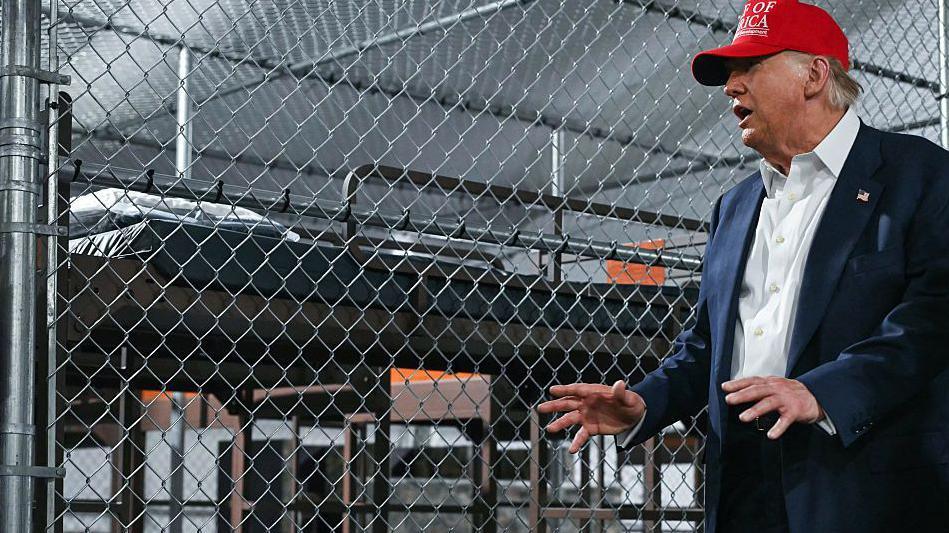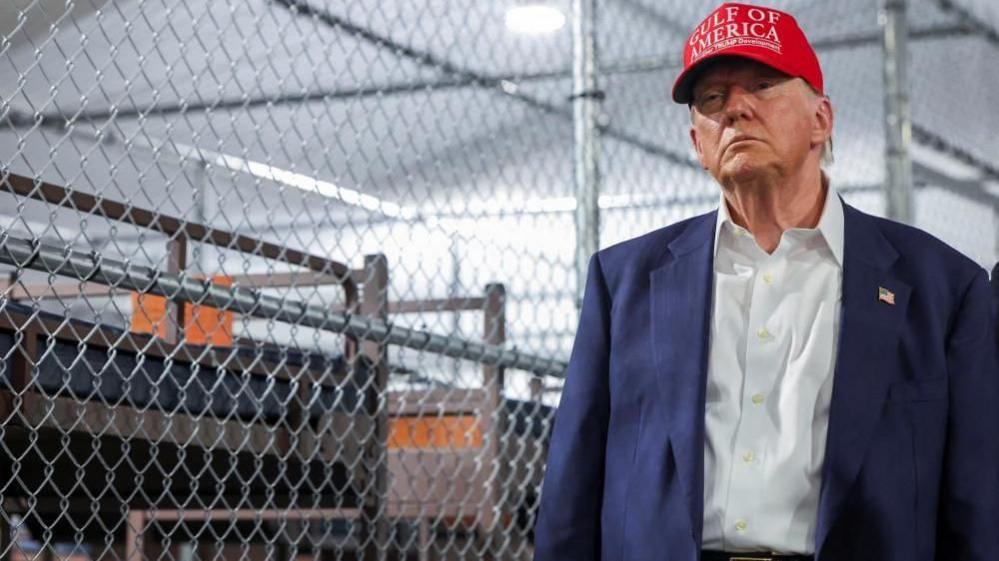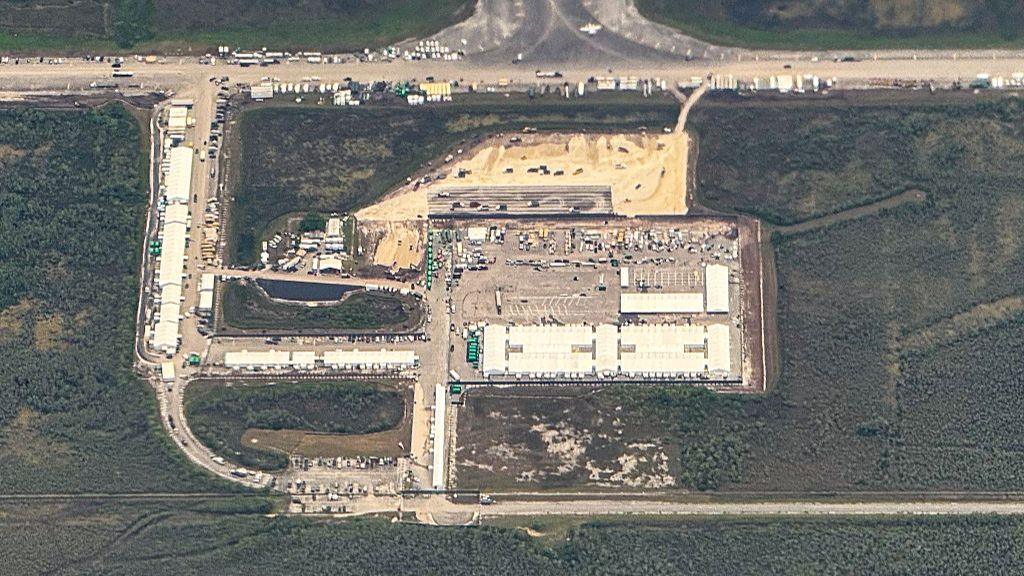Trump's 'Alligator Alcatraz' being emptied of immigrant detainees

Donald Trump visited 'Alligator Alcatraz' shortly before it began operations in July
- Published
The number of people at Donald Trump's controversial immigrant detention centre "Alligator Alcatraz" has dropped by half following a judge's order to close much of the facility, according to border tsar Tom Homan.
US media, citing internal emails between Florida officials, report the centre could be empty within "days".
The facility - located deep in the swampy Florida Everglades - opened in July to support the Trump administration's mass deportation drive.
It quickly drew multiple legal challenges over alleged poor conditions and environmental damage to the delicate ecosystem of the Everglades, a Unesco world heritage site.
Watch: US border tsar says "Alligator Alcatraz" not a waste of resources
Last week, a federal judge issued a preliminary injunction halting expansion of the facility, and ordering its operations wound down, with all detainees to be relocated within 60 days.
In response to a question from the BBC at the White House on Thursday, Homan confirmed that the number of detainees had fallen by half since the ruling.
He did not specify how many remained, but the complex was originally built to hold up to 3,000 people.
"I disagree with the judge that made that decision," Homan said. "I went down there. I walked into detention areas. I saw a clean, well-maintained facility."
He also defended the medical facilities at the detention centre, calling it "better than for a lot of US citizens", and said it included landing pads for helicopters to take detainees to a nearby trauma centre. Homan also dismissed any environmental concerns over its waste management.
During a press briefing at the White House on Thursday, Press Secretary Karoline Leavitt said that the administration would comply with court orders, but it would not "back down".
"We've always said that we are going to continue to fight in the court of law," she added. "We think that it's despicable that an activist judge has inserted themselves in this migrant detention facility."
Leavitt said that re-locating the migrants after the court's decision was an "unnecessary burden" on homeland security officials and the agents "who should be removing those criminals from our community".
Kevin Guthrie, the executive director of the Florida Division of Emergency Management, estimated late last week that Alligator Alcatraz was "probably going to be down to 0 individuals within a few days", according to an e-mail exchange seen by media outlets, including the AP and New York Times.
While the judge's decision marked a blow to the Trump administration's deportation drive, other temporary facilities are being built in several Republican-led states. This includes a second facility in Florida dubbed "Deportation Depot", and another in Indiana that homeland security officials have named the "Speedway Slammer".
Homan said that while "Alligator Alcatraz" was a "great transitional facility", he did not see it as a long-term solution.
"I do think ICE [Immigration and Customs Enforcement] needs more brick-and-mortar [facilities]," he told reporters. "We've got the money now to build infrastructure....permanent facilities."
Pressed by reporters on whether the entire project was a waste of resources given the judge's decision, Homan said "no".
President Trump's sprawling budget bill, signed into law on 4 July, provides $45bn (£33.3bn) for expanded detention centres, which some analysts have said could fund as many as 116,000 new beds.
The bill also allocated an additional $170bn towards immigration enforcement and border security, including $75bn in funding for ICE to carry out enforcement and deportation operations in the US interior.


